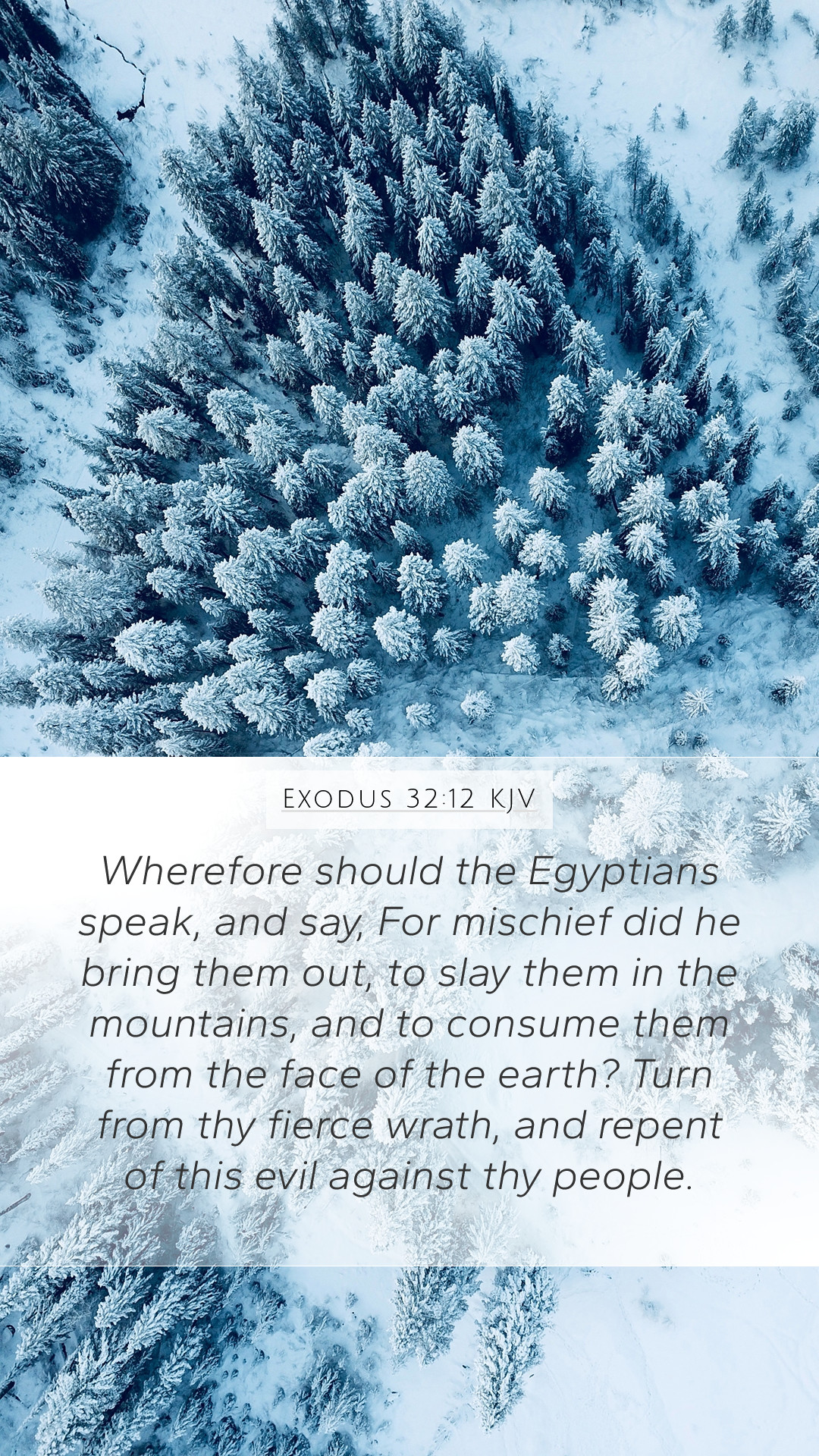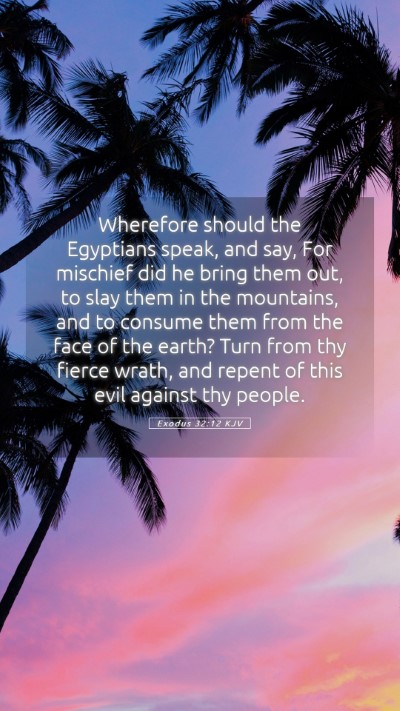Exodus 32:12 - Bible Verse Commentary
Verse: Exodus 32:12 - "Wherefore should the Egyptians speak, and say, For mischief did he bring them out, to slay them in the mountains, and to consume them from the face of the earth? Turn from thy fierce wrath, and repent of this evil against thy people."
Overview: This verse occurs in the context of Moses' intercession for the Israelites after the incident of the golden calf. The verse reflects Moses' plea to God, emphasizing God's mercy and the consequences of sin.
Summary of Meaning
Exodus 32:12 reveals the profound themes of divine judgment, mercy, and intercession. It shows how Moses invokes God's reputation and intentions before the Egyptians, stressing that the liberation of Israel is part of His redemptive plan.
Meanings from Public Domain Commentaries
-
Matthew Henry:
Henry discusses the significance of Moses appealing to God's honor. He suggests that Moses feared for the implications of God's wrath being known among the Egyptians, which could undermine the glory of God's deliverance. The emphasis on turning from wrath signifies God's ability to relent from punishment, showcasing His merciful nature beyond judgment.
-
Albert Barnes:
Barnes emphasizes the emotional weight behind Moses' words. He reflects on the intention of showing that the penalty for sin serves a greater purpose; the witness of the nations can either elevate or desecrate God's name, depending on how Israel's fate is viewed. Moses' intervention acts as a critical moment where the leader places himself between the people and divine judgment.
-
Adam Clarke:
Clarke points to the historical context, noting that the Egyptians would see any harm done to the Israelites as evidence of God's failure to uphold His promises. Clarke elaborates on the relationship between God's justice and mercy, implying that the intercession of Moses is integral to God's plan and character. It serves as a catalyst for demonstrating true penitence.
Key Themes and Insights
- The Power of Intercession:
Moses' role as an intercessor highlights the importance of prayer and advocacy for others in the face of judgment. His willingness to plead for Israel demonstrates profound leadership and compassion.
- God's Mercy vs. Judgment:
This passage illustrates the tension between God's justice and His mercy, which is a recurring theme throughout Scripture. It invites believers to understand that while God is just, He is also inherently merciful.
- God's Reputation Among Nations:
Moses is deeply concerned about how God's actions will be perceived by the Egyptians, reinforcing the importance of God's name and reputation in the surrounding nations and throughout Scripture.
Related Cross References
- Exodus 32:11 - Moses pleads with God for the people.
- Deuteronomy 9:26-29 - Moses recalls his intercession.
- Jeremiah 18:7-8 - God's willingness to relent from disaster.
Application of the Verse
This verse encourages modern believers to act as intercessors, advocating for those who may be facing judgment or consequences of their actions. It serves as a reminder of the loving and merciful nature of God, and the importance of pleading for others before Him.
Understanding Scripture Through Exodus 32:12
When exploring bible verse meanings, especially in contexts such as Exodus 32:12, it is vital to recognize the cultural and historical backgrounds that inform the text. The intercession by Moses is a profound example of leadership that seeks to uphold the honor of God while also conveying deep compassion for the people.
Conclusion
Exodus 32:12 showcases a moment where mercy triumphs over judgment through the powerful plea of Moses. For those engaging in bible study insights, this verse serves as a vital component in understanding the nature of God as compassionate and just, and the role of leadership in spiritual contexts.


